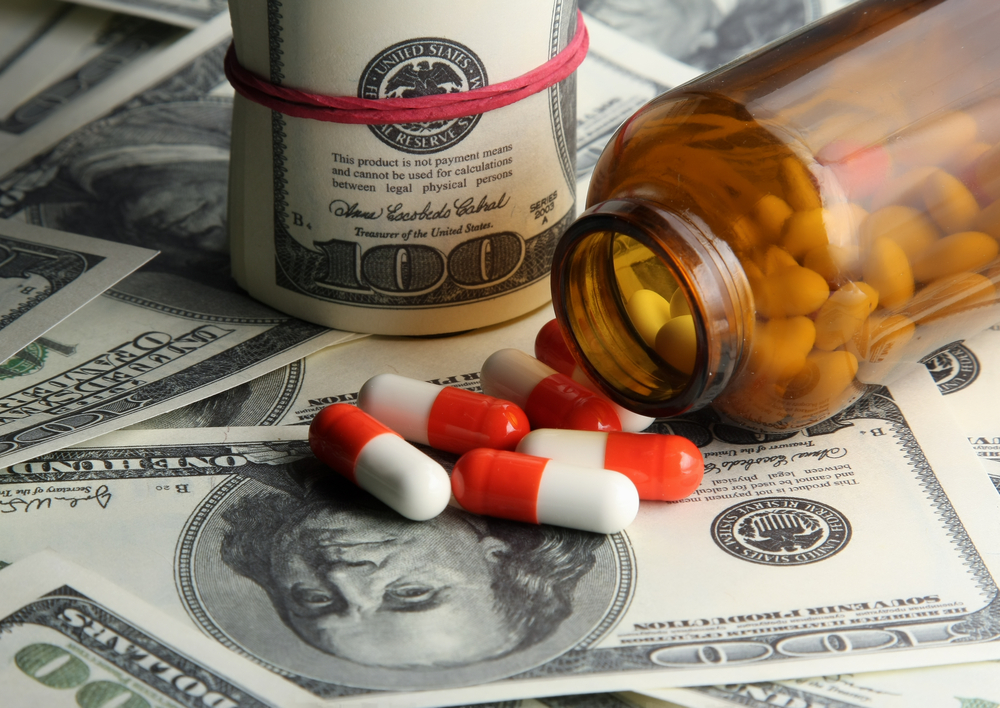We all know how democracies are supposed to work: People come together, identify their common problems, then debate and decide solutions. But this elegant give-and-take can break down. What breaks it? Inequality. Democratic deliberations start going haywire whenever wealth starts furiously concentrating at a society’s summit.
In societies growing significantly more unequal, people simply share ever fewer common problems. And some people, thanks to their increasing wealth, have the political power to make their problems the problems their society addresses.
And what happens to the problems of people without grand private fortune? Their problems go ignored. Democracy becomes plutocracy.
In our contemporary United States, we see this plutocratic dynamic play out all the time. Oxfam, the activist global charity, has just offered up a particularly vivid example: the crisis around prescription drugs.
For Americans of modest means, prescription drugs have emerged as a top-tier problem on any number of fronts. Start with cost. The drugs doctors prescribe have become so expensive that millions of Americans can’t afford to buy all the pills their doctors want them to take.
Meanwhile, drug companies have become drug pushers, overselling the benefits and shortchanging the hazards of profitable painkilling medications, in the process creating an opioid epidemic that has devastated millions of American households — and communities.
Big Pharma’s relentless chase after profits drives and distorts medical research agendas, too. On cancer, for instance, drug companies will only conduct costly clinical trials on substances that can be patented and pay off in big earnings. Promising but unpatentable natural substances can’t deliver big profits. So they don’t get tested. They remain on the medical fringes, their curative potential untapped.
In short, prescription drugs rank as a big-time — and even deadly — aggravation. In a vibrant democracy, we’d now be having a major national no-holds-barred debate on Big Pharma. We’d be generating a steady series of reforms and new approaches to how we make and market the prescription drugs that truly make for better health.
We are having no such grand national debate. Some isolated reform proposals for challenging the prescription drug status quo do occasionally emerge. They go nowhere. Gridlock rules the day on any initiative that might bring real change and real relief for average Americans.
The wealthy corporate executives who run Big Pharma, by contrast, tend to experience far less frustration. The political gridlock that sometimes seems to define our times somehow always seems to dissipate when corporate priorities — like lower corporate taxes — elbow their way onto America’s political center stage. Case in point: the Republican tax act enacted into law in December 2017.
Oxfam America’s just-released new study, Hazardous to Your Health, details what a breathtakingly generous bonanza for Big Pharma this tax cut has been. In 2018, notes the Oxfam analysis, the tax cut saved America’s Big Pharma four — Johnson & Johnson, Pfizer, Merck, and Abbott Laboratories — a combined $7 billion.
Where did those billions go? Did Big Pharma use its tax-savings windfall to lower prescription drug prices? Did our biggest drug companies put their freshly minted billions into needed new research? Not exactly. Not at all.
If those billions had gone into health-enhancing activities like lower prices and more research, Big Pharma’s tax-cut bonanza could now be saving lives. Lots of lives. With $7 billion, Oxfam notes, we could be “almost doubling” current campaigns against the ravages of the opioid epidemic. In 2017 alone, the opioid crisis left nearly 50,000 Americans dead.
But the tax windfalls Big Pharma execs have reaped from the 2017 tax cut have gone instead to enriching Big Pharma executives and their fellow Big Pharma shareholders. They’ve plowed their tax-cut billions into dividends and stock buybacks, moves that increase the value of their company shares — and ensure even more lucrative pay packages for Big Pharma top execs.
“Pfizer and Merck, in particular, have aggressively bought back their own stock, repurchasing $12 billion more in the full first year of the U.S. corporate tax overhaul than in 2017,” the new Oxfam America Big Pharma report points out. “Their R&D spending, meanwhile, flat-lined.”
Oxfam America’s new study places a human face on the buyback numbers. Late in 2017 and then again in October 2018, the study relates, Merck announced major stock buybacks that helped send the company’s share price steadily up, from $65 at the end of last July to $82.05 this past March. Merck CEO Kenneth Frazier took full advantage of those rising share prices — by selling lower-priced Merck shares he had received as part of his annual pay packages.
“In less than nine months of a very busy buyback period,” Oxfam America observes, “Merck’s CEO has sold an astonishing $110 million of stock.”
What we see with Merck, Oxfam stresses, we see in the greater U.S. economy. We increasingly have an economy of extraction, not production. Top corporate execs are extracting wealth from their enterprises on behalf of themselves and other major shareholders, not investing in their enterprises and creating wealth that benefits us all.
That extraction constitutes an overarching problem for the American economy and the lives of all those who depend on it. But that extraction goes unexamined. In a plutocracy as robust as ours, no one should be surprised.
